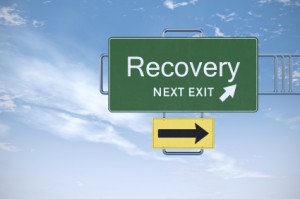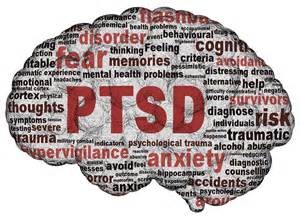By: Robert Avsec, Executive Fire Officer
Over the past year or so, I’ve authored several articles for this site, as well as FireRescue1.com and EMS1.com, about firefighter mental health and suicide. Both of those issues are posing a serious threat to firefighters, their departments, and the communities that they serve. The following is a compilation of those articles.
Alcohol and Substance Abuse
Substance abuse programs: What EMTs and paramedics need to know
Successful substance abuse treatment requires evidence-based practices, individualized care and program components tailored to unique needs of EMTs and paramedics.
Firefighter Suicide
The Stigma of Firefighter Suicide
But we cannot ignore that firefighters in our midst are hurting today and hurting for a variety of reasons. We must stop thinking that firefighters who are hurting—from PTSD, substance abuse, domestic violence (at home and in the workplace)—will come to work with a sign on their forehead that reads, “I Need Help!”
Protecting Firefighter Mental Health
PPE for firefighter psyche
Firefighter safety is also about protecting the mind from the barrage of witnessed trauma.
4 strategies to reduce firefighter stress
Firefighter safety is as much about their mental state as their physical state; here’s what the company officer can do to boost the crew’s emotional hygiene.
Why firefighter mental safety is like a hazmat scene
Following hazmat scene basic protocols when dealing with an emotionally difficult scene can help firefighters protect firefighters from the stress and exposure to trauma and assist them in coping better.
Firefighters, Depression and PTSD
Dr. Will Brooks, Ed.D.
Dr. Brooks is a retired firefighter who was a Founder and President of the Canadian Fallen Firefighters Foundation. He’s written about firefighters and Critical Incident Stress and has presented his findings to fire service organizations, as well as private and public sector organizations, across Canada.
Is the Diagnosis Really PTSD?
There is no doubt that firefighters and other first responders do sometimes experience PTSD. It has been my  privilege to listen to several first responders who could be accurately diagnosed with PTSD.
privilege to listen to several first responders who could be accurately diagnosed with PTSD.
However, recent articles and “studies” purporting to be seeing PTSD in groups of firefighters are alarming in the use of rates for this diagnosis. A quick sample of these efforts indicates ranges from 17-24% of a cohort of firefighters who could be said to have PTSD.
Depression, like fire, takes many forms
Walk into any fire station and ask the crew if anyone has ever suffered from depression. Watch the result. In the average house, silence is the most probable response. Silence, averted glances, and changes in body language, all of which say, “Let’s not go there.” This is by no means always the response, but it is typical and may be part of what harms our firefighters.
Nathalie Michaud, Firefighter and PTSD Suffer/Survivor
What to Say About Firefighting and PTSD?
I live with PTSD (Post Traumatic Stress Disorder), and it lives with me. I got diagnosed in the Fall of 2014; it hit me like a ton of bricks and sucked the air out of me. I had no idea that all the symptoms that I had for the past 5 years were due to PTSD. I thought I was “just” depressed or “just” losing my mind.
A Firefighter’s Struggle with PTSD
I started abusing prescription drugs and over the counter drugs and things went from bad to worse. In July of 2014, my doctor then diagnosed me as having major depression, pulled me off work and told me I should enter a facility for my drinking problem. Of course, I did not!
So, then September 2014 comes along and the PTSD diagnosis “grenades” lands itself on me. I got worse and did more harm to myself. My desperation and my need to “make it all stop” brought me to making the only choice I thought I had.
PTSD: My New “Friend”
After I received the diagnosis of my PTSD in late Summer 2014, I was partly relieved because now I knew why I felt  and thought the way I did. It didn’t make it any easier to accept, but now that there was a name for it, a bit of the “ET” syndrome went away.
and thought the way I did. It didn’t make it any easier to accept, but now that there was a name for it, a bit of the “ET” syndrome went away.
I had choices: accept PTSD or be angry. I figured, may as well be “friends” with it so I can get close enough to understand. This isn’t a monster under my bed nor is it a skeleton in my closet… unless I let it.
Strategy for Coping with the Stresses of Life and the Job
Leckey Harrison: Raise Your Resilience
Animals in the wild naturally shake after a traumatic experience and don’t suffer from trauma-related conditions such as PTSD. Unfortunately, humans have “pathologized” this shaking and suppressed it to keep from being perceived as weak or afraid.
We can’t evolve quickly enough to adapt to the pace of change today. Fifteen thousand years ago, we fought or fled in response to physical threats. Today, our fight-or-flight system gets activated by things like alarm clocks, traffic, and layoffs, and we rarely discharge the resulting survival energy by fighting or fleeing. TRE enables us to discharge this energy at will and return to a state of balance.
Tension Releasing Exercises (TRE®) stretch and slightly fatigue muscles, a process that induces therapeutic tremors. These tremors release deep muscular patterns of stress, tension, and trauma, calm the nervous system, and help the body return to a state of balance.
 Fire & EMS Leader Pro The job of old firefighters is to teach young firefighters how to become old firefighters!
Fire & EMS Leader Pro The job of old firefighters is to teach young firefighters how to become old firefighters!